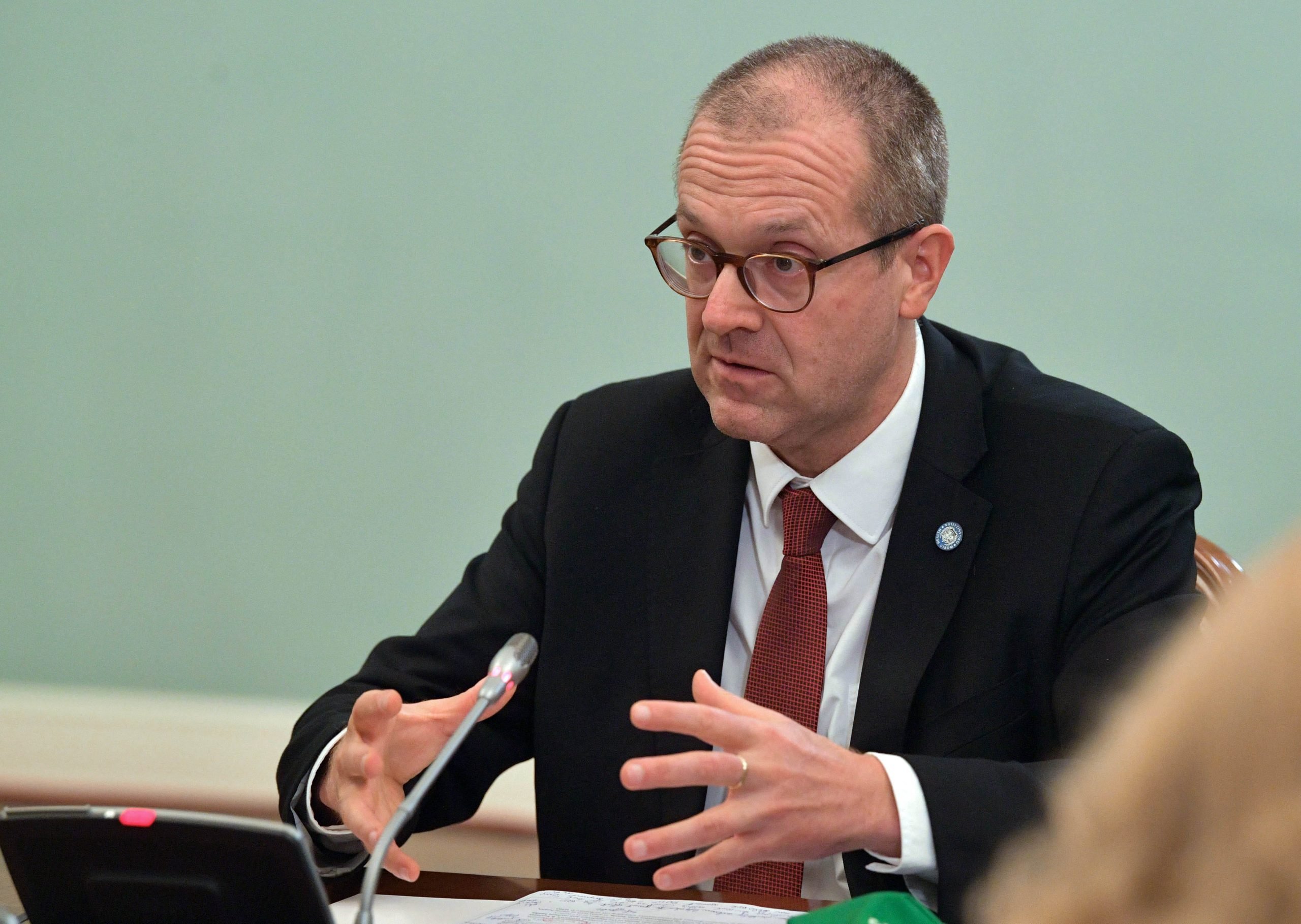
- Europe is entering a "ceasefire" in the pandemic, said WHO Europe director Hans Kluge on Thursday.
- This new phase of the pandemic could bring a "plausible endgame" for the region, he said.
- While Europe just reported record weekly infections, hospitalizations didn't spike significantly.
Europe is poised to enter a "long period of tranquility" in the COVID-19 pandemic that could deliver "enduring peace" to the region's fight against the virus, the World Health Organization's Europe director Dr. Hans Kluge said.
Kluge attributed his optimism to three main factors — high vaccination rates across the continent, the end of winter, and the Omicron variant's low severity.
"This period of higher protection should be seen as a ceasefire that could bring us enduring peace," Kluge said in a Thursday media briefing.
An extended period of protection for Europe could mean a "plausible endgame" for its pandemic, said Kluge, an idea that he first dangled in his interview with Agence France-Presse in January.
"Not to say that it is now all over, but to highlight that in the European region there is a singular opportunity to take control of transmission," said Kluge.
Kluge said that around 12 million new COVID-19 cases were detected in Europe last week, the highest ever recorded. But while hospitalizations and ICU admittance rates did grow, they haven't spiked significantly, he added.
But the health expert's bullish outlook is conditional; Kluge said European nations would first have to keep up their vaccination efforts, track new emerging variants vigilantly, and teach people to be socially responsible and protect themselves.
"The top priority is to bring all countries to a level of protection which allows them to grasp this opportunity too, and look ahead to more stable days. This demands a drastic and uncompromising increase in vaccine-sharing across borders," said Kluge, repeating the WHO's frequent plea for nations around the world to achieve vaccine equity, partially because it helps to stop new variants from surfacing.
According to official data from the European Centre for Disease Prevention and Control, at least 70% of Europe's total population has been administered two doses of the COVID-19 vaccine.
In parallel with Kluge's remarks, Norway, Denmark, and Sweden announced that they were removing restrictions around social gatherings this week. Sweden, the latest to lift restrictions as of Thursday evening, also withdrew its requirement for vaccine certificates and masks on public transportation.
"It is time to open Sweden again," said Swedish Prime Minister Magdalena Andersson on Thursday, The Associated Press reported.
"The pandemic is not over but has entered a totally new phase," Andersson said, AP reported.
On the other hand, WHO Director-General Tedros Adhanom Ghebreyesus last month warned against complacency in the pandemic, advising nations around the world not to place their bets yet on a pandemic "endgame."
